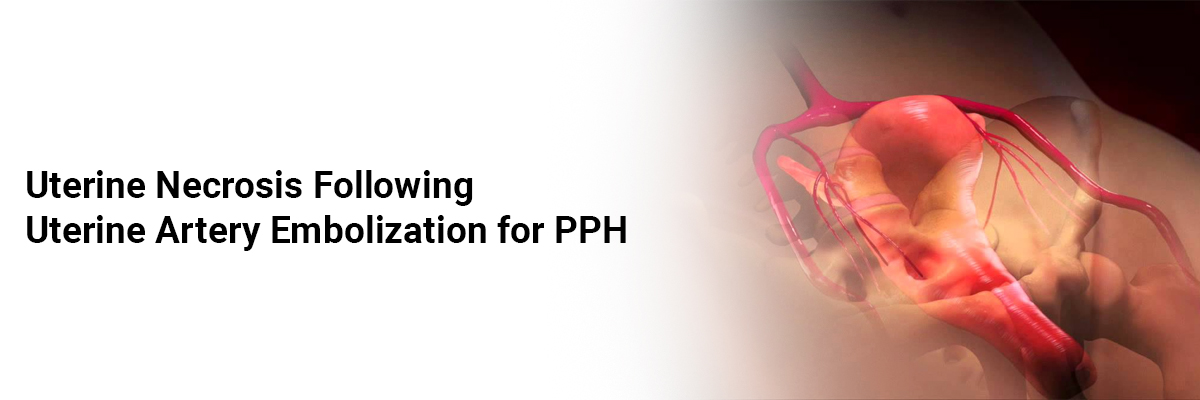
 IJCP Editorial Team
IJCP Editorial Team
Uterine Necrosis following Uterine Artery Embolization for PPH
A 30-year-old woman was hospitalized for labor induction at 40 weeks and
6 days gestation. She had a history of three prior uncomplicated vaginal
deliveries.
Following unsuccessful induction with Dinoprostone due to persistent
category 2 fetal heart rate tracing, a cesarean section was performed,
resulting in an intraoperative blood loss – nearly 1000 ml.
Postoperatively, the patient experienced increased vaginal bleeding
(postpartum hemorrhage) due to uterine atony, unresponsive to various
uterotonic agents and tranexamic acid. Attempts to control bleeding with a
Bakri balloon were unsuccessful.
Consultation with interventional radiology led to bilateral uterine
artery embolization (UAE) using tris-acryl gelatin microspheres.
Postoperatively, the patient developed symptoms, including foul-smelling
discharge, abdominal pains, fever, and chills, prompting an abdominopelvic CT
scan on day 28. The scan revealed an enlarged uterus with unenhanced areas of
the endometrium and myometrium, as well as internal gas foci, indicative of
uterine necrosis with approximately 50% of the normal residual myometrial
thickness.
Empiric broad-spectrum antibiotics were initiated. Despite adjustments,
the patient's symptoms persisted, leading to examination under anesthesia,
dilation, and curettage (D&C) with direct ultrasound guidance.
Pathological evaluation revealed acute and chronic endometritis,
with Streptococcus anginosus and Prevotella species identified in tissue cultures.
Culture-directed antimicrobial therapy resulted in symptom improvement, and the
patient was discharged on day 7 with a 14-day antibiotic course.
At follow-up, she showed no abnormalities, denied discomfort or abnormal
discharge, and expressed satisfaction at retaining her uterus. She opted for an
etonogestrel subdermal implant for contraception.
Although hysterectomy is typically recommended for uterine necrosis, this patient desired fertility preservation, which was successfully avoided in this case. Hence, tailored treatment approaches are essential while managing PPH cases.
Source: Chlela M, Dawkins J, Lewis G. Case Reports in
Obstetrics and Gynecology. 2023 Jul 19;2023.

IJCP Editorial Team
Comprising seasoned professionals and experts from the medical field, the IJCP editorial team is dedicated to delivering timely and accurate content and thriving to provide attention-grabbing information for the readers. What sets them apart are their diverse expertise, spanning academia, research, and clinical practice, and their dedication to upholding the highest standards of quality and integrity. With a wealth of experience and a commitment to excellence, the IJCP editorial team strives to provide valuable perspectives, the latest trends, and in-depth analyses across various medical domains, all in a way that keeps you interested and engaged.






















Please login to comment on this article